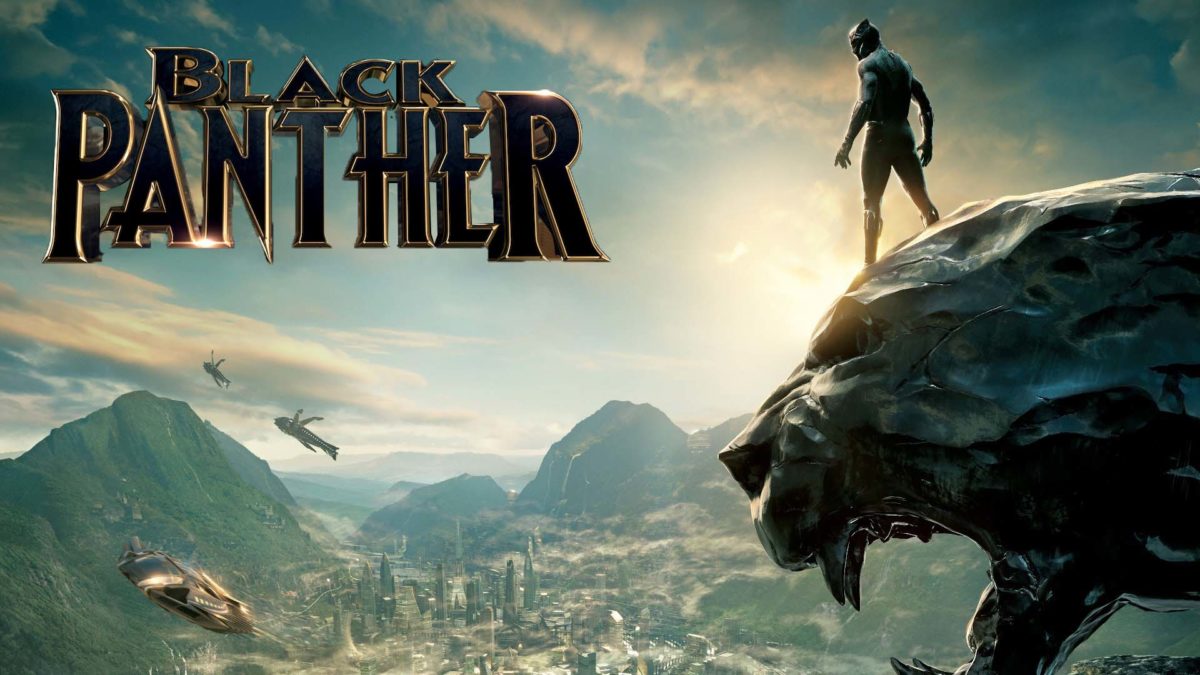I got the chance to see Black Panther for the first time two weeks ago. I spent months following production, discussing fan theories with friends and even buying a shirt for the premiere (yes, I was one of those fans). But as the release date got closer I was asked a very rational question: “What if the movie just doesn’t live up to the hype?”
This was a fair question: Black Panther was anticipated beyond measure, and overhyping can lead to disappointment, a fear of speaking out or unwarranted value. So, after seeing the movie, finishing my popcorn, and thinking long and hard about it, I asked myself: is Black Panther worth all the hype?
The short answer: yes. The long answer: as a superhero sci-fi movie and the center of a social movement, I think it deserves every ounce of attention it’s getting.
Because I’m a nerdy English major I’ve taken my fair share of science fiction classes, and good science fiction is always described as “exploring the human condition and how groups of people react to changes in science, technology and their environment.” In short, no matter how outlandish the situations may seem, the following issues are very real and very current. Black Panther brings up just those sorts of current issues.
Wakanda, the fictional country the movie takes place in, has a large deposit of a powerful alien metal called vibranium. The Wakandans have used it to radically advance their technology, but they trust the world so little that they’ve hid their advancements for centuries.
Because we’re in a time where xenophobia and borders are on everybody’s minds, the movie’s question of “should we isolate ourselves, or help those in need?” feels very relevant in today’s society. Most of the characters have their own opinion on the matter and everyone gets a chance to say why, so in a way it has a political discussion stretched through the run time.
The topic of race was expected in this movie, but the movie’s approach is swift and raw. Without going into spoilers, the movie addresses the effects of colonization and racism in ways that range from concise statements to moves so subtle you don’t notice them until after the movie. Several characters are personally affected by this and their resulting beliefs are extreme but completely understandable.
Keep in mind this all takes place in an African nation where colonialism is completely absent. Black Panther is about Afrofuturism — science fiction heavily influenced by African culture – so it shows you how an African country could’ve evolved if left undisturbed. This means every scene in Wakanda is filled with art, architecture and culture rooted in the regions Wakanda is based. Not only is it a far cry from the shanty towns we associate with Africa, but it shows just how powerful they could’ve been.
This all goes back to what makes the movie special: representation. Hollywood has a history of rarely showing people of color in movies, and it’s even rarer that the representation is positive. African-Americans almost always play the role of a slave, victim, criminal or side-character, and in superhero movies the black heroes are either sidekicks or the stars of an all around bad film (fight me, Blade fans).
In Black Panther, not only is the protagonist a black superhero, but most of the compelling cast of supporting actors is also black. Half of Wakanda’s warriors are women and even their lead inventor is a teenage prodigy and one of the best characters in the entire movie. It not only shows young black children superheroes can look like them, but they don’t even need superpowers to be special. That alone is reason for millions of people to be excited for the Black Panther movie.
Black Panther isn’t a lecture: it’s poignant, sure, but in the end it’s an action movie about a dignitary in a metal cat suit who beats people up for stealing. What I’m saying it it’s a chance for a marginalized group to see themselves in a positive, powerful light that appreciates the beauty of who they are and where they came from. You won’t be sorry for watching it, I promise you.
Wakanda forever.

